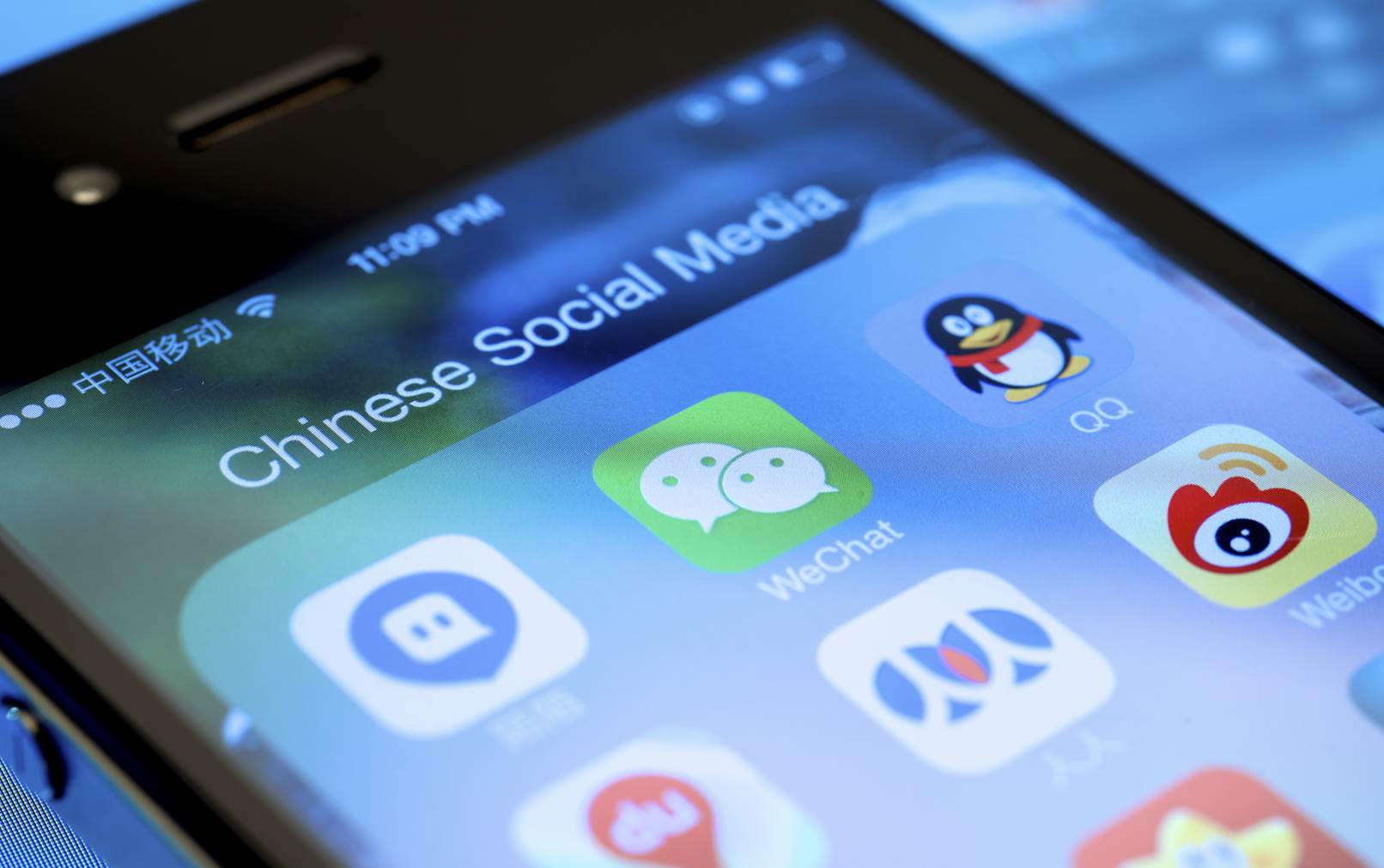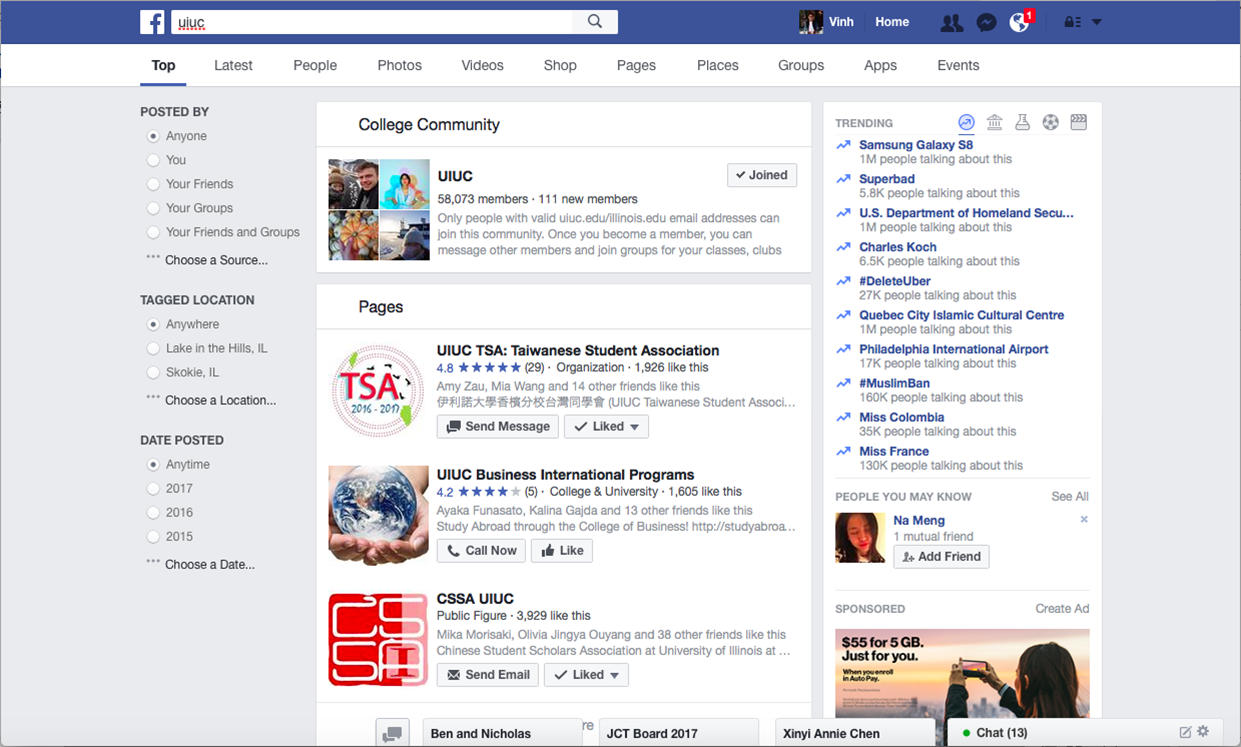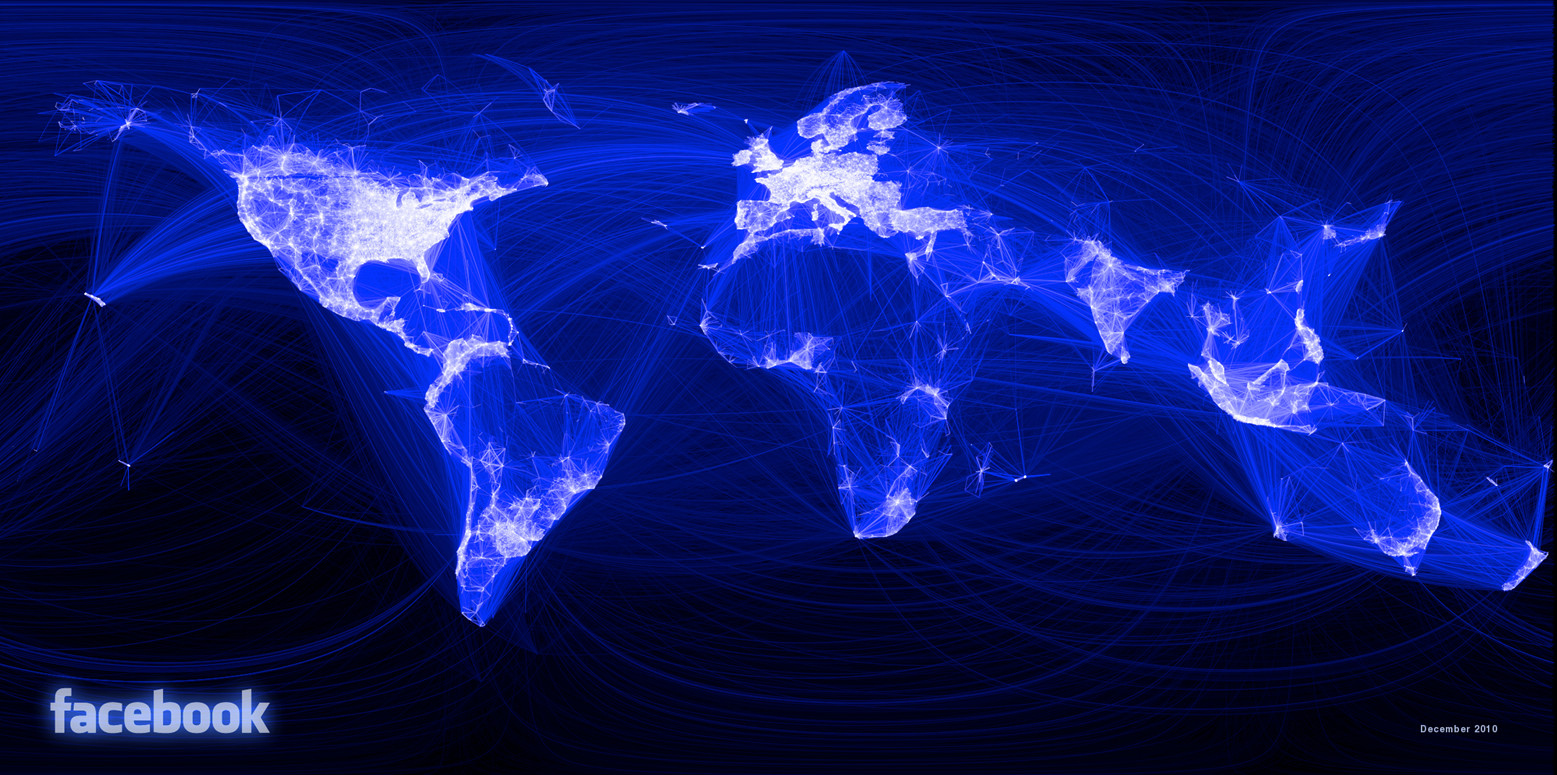Vinh Quach
LAS Global Studies, College of Liberal Arts and Sciences, University of Illinois at Urbana-Champaign
Facebook usage amongst Chinese international students is an intriguing subject mainly because of how unusual the Chinese social media environment is.
There are nearly 730 million internet users in China of which 90% use social media according to a report issued by the Chinese government (CNNIC, 2017). Yet, none of the Chinese internet users have direct access to Facebook because of the government’s censorship of foreign social media platforms (Wauters, R. 2009; Kharpal, A. 2017). The increasing pressure that the Chinese government has put on foreign social media and in controlling domestic social m edia has created an environment deemed oppressive by some in the media (The Economist, 2016; Mozur, P., 2016).
edia has created an environment deemed oppressive by some in the media (The Economist, 2016; Mozur, P., 2016).
With this perception of the Chinese media environment in the West, it would seem that most Chinese people are unfamiliar with Facebook. This is interesting because the most recent data shows that 328,547 Chinese international students attend university in the United States, where it is unlikely that these students do not encounter Facebook (Institute of International Education, 2015; Duggan, M. et al. 2016).
When Chinese students encounter Facebook what happens? This study will look at how Chinese students use Facebook while studying in the United States, and will also attempt to answer the question of identity and social media usage.
•To identify the prevalence, reasons, and effects on identity that Facebook usage has on Chinese International students at American Universities.
•To determine if the Facebook Community is its own nation.
•To analyze the power of surveillance and censorship technologies to create communities.
•This study can show how Facebook can be used to create communities and to influence identity creation.
Sample:
•Research participants are Chinese students enrolled at the U
niversity of Illinois Urbana-Champaign.
•Participants were found using the University of Illinois Facebook page, and contacted if they identified their hometown to be in China.
Recruiting Process:
•After the initial search, the researcher contacted the subjects for a preliminary screening to ensure that the student is in fact a current international student at the University of Illinois, and is also a citizen of the People’s Republic of China.
•The researcher also uses his academic and personal network of acquaintances to identify subjects in the initial search.
Sampling Procedures:
•Online Surveys: A close-ended online survey is disseminated to the aforementioned sample.
•Personal Interviews: Of the aforementioned sample, 20 participants are asked for a personal interview scheduled to last for 20 minutes.
Surveys and personal interviews were utilized because they can provide nuanced understandings of Facebook Usage by Chinese international students.

Prevalence of use
Chinese Student Scholar Association Facebook page like count is over 3000, where total Chinese student enrollment numbers around 5000.
Reasons for Using Facebook
•Connection with colleagues on campus.
•Greater integration into Campus community.
•To learn English.
•To gather information about campus events.
Identity
•Social media can reinforce identity regardless of the origin of said social media application. In other words, Facebook usage in and of itself will not change identity.
•The literature suggests that students may use social media to find a community for themselves.
•Facebook Nation: a conception of Facebook as becoming something similar to a nation state; where activism, digital identities, government, etc. all coalesce together.

•Facebook usage could be either an enforcer of identity or a medium to change identity.
•Many Chinese international students use Facebook for a variety of different reasons. For instance, to gather information about school events, to connect with colleagues at the university, and to improve English skills.
•Chinese international students may not be using Facebook to the same level of intensity that American students are.
•Surveillance would be important to understand because the data from Facebook can allow companies, governments, and other organizations to influence users and ultimately could effect identity formation.
WORKS CITED
CNNIC. (2017). China statistical Report on Internet Development. China Internet Network Information Center. Retrieved from: http://www.cac.gov.cn/2017-01/22/c_1120352022.htm
Duggan, M., Greenwood, S., & Perrin, A. (2016, November 11). Social Media Update 2016. Pew Research Center. Retreived from: http://www.pewinternet.org/2016/11/11/social-media-update-2016/
Institute of International Education. (2015). International Students in the United States. Institute of International Education. Retrieved from: http://www.iie.org/Services/Project-Atlas/United-States/International-Students-In-US#.WIeoKrRttMI
Kharpal, A. (2017, January 24). China cracks down on the tools that help people get around its ‘Great Firewall’. CNBC. Retrieved from: http://www.cnbc.com/2017/01/24/china-cracks-down-on-vpn-that-help-people-getting-around-its-great-firewall.htm
Mozur, P. (2016, November 7). China’s Internet Controls Will Get Stricter, to Dismay of Foreign business. The New York Times. Retrieved from: https://www.nytimes.com/2016/11/08/business/international/china-cyber-security-regulations.html?_r=0
Wauters, R. (2009, July 7). China Blocks Access to Twitter, Facebook After riots. Techcrunch. Retrieved at: http://www.washingtonpost.com/wp-dyn/content/article/2009/07/07/AR2009070701162.html
The Economist. (2016, December 17). China invents the digital totalitarian state. The Economist. Retreived from: http://www.economist.com/news/briefing/21711902-worrying-implications-its-social-credit-project-china-invents-digital-totalitarian
ACKNOWLEDGEMENTS
I would like to thank my committee, Professor Tim Liao, Department of Sociology and Professor James Hay, Department of Media and Cinema Studies for their guidance. I would also like to extend my thanks to Dr. Parthiban Muniandy and Dr. Tanu Kohli, LAS Global Studies for their advice and guidance.
